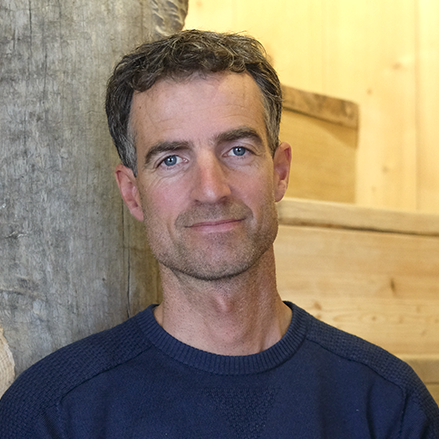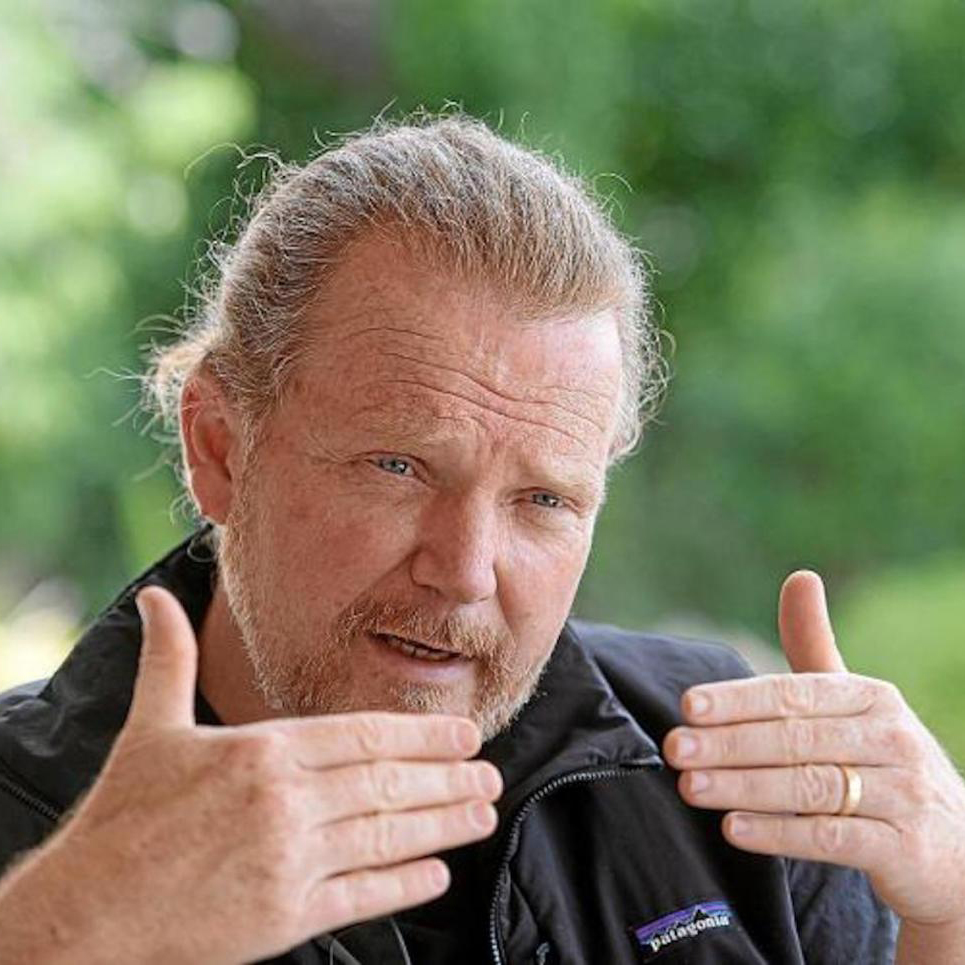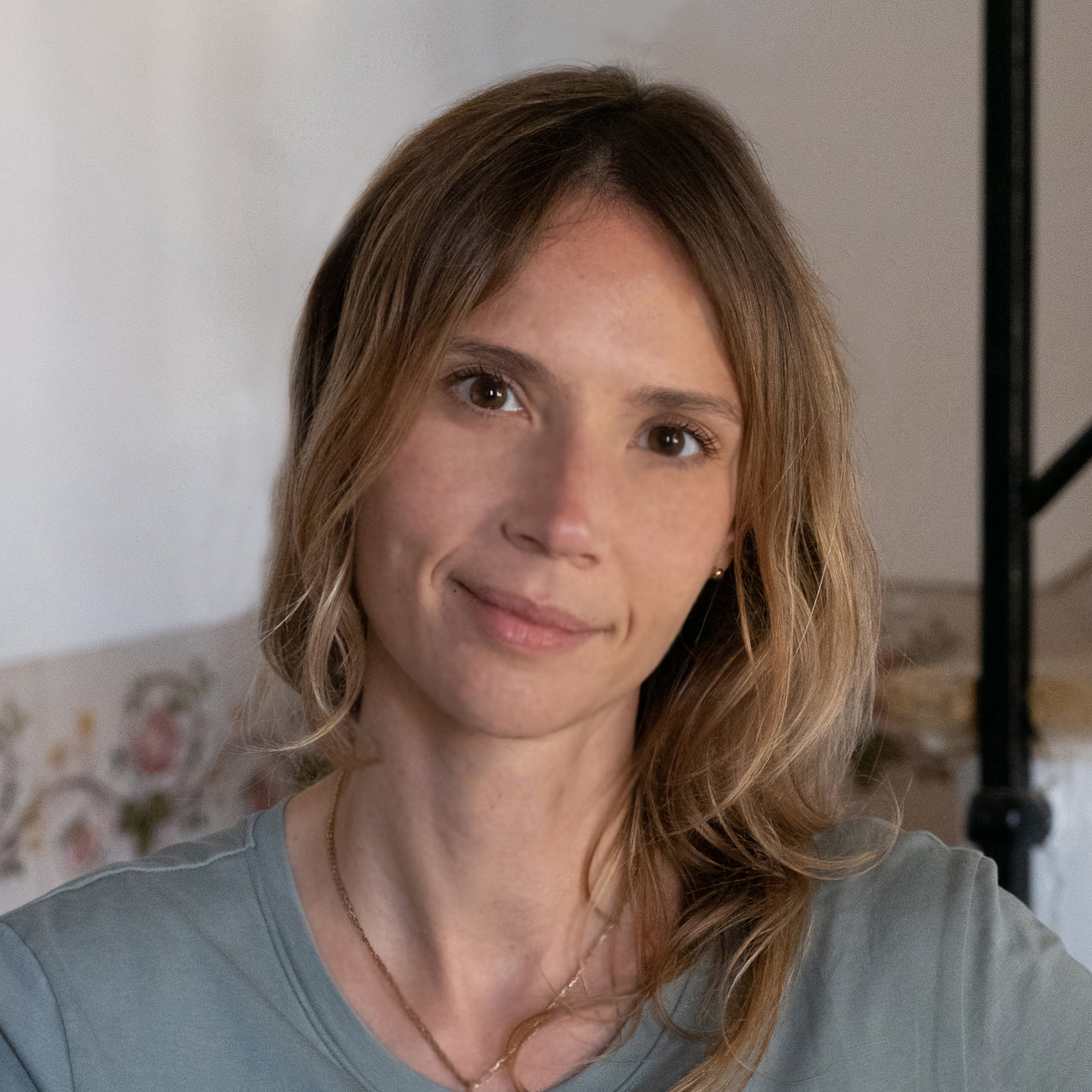MOOC ETH : Designing Resilient
Regenerative Systems
ETH Massive Open Online Course Series in Designing Resilient Regenerative Systems
A MOOC series about creating positive impact in complex systems as part of learning communities
This innovative Massive Open Online Course (MOOC) hybridizes sustainability science, systemic design and transformative action. It provides you with worldviews, tools, illustrations and transformative networks to build your capacities and engage in systemic innovation of complex systems.
The increasingly fast-changing world requires as well skillsets of relational holism and creative weaving of effective solutions in cooperation. Such solutions need to strengthen regional bio-economies and local communities, while increasing cooperation on a sub-national scale, across national boundaries, still making us less dependent on global supply chains.
MOOC#1 : From Sustainability to Regeneration
MOOC#2 : Beyond Systems Thinking
MOOC#3 : Systemic Design
MOOC#4 : Real-world Transformative Design Praxis
Duration: 4 x 3 months recommended (faster possible in self-paced mode)
Format: virtual (edX) + DRRS network
Language: English
Program fee: Free / edX certificate 50 euros
About the MOOC series
This 4 Module MOOC series is about creating positive impact in complex systems in times of nested crises. It is about navigating complexity and uncertainty with new tools and practices, such as “organic emergence.” Complex systems are inherently dynamic and unpredictable: their properties are emergent. An organic way to engage with emergence is to trust in having the right tools and techniques to adaptively cope with sudden surprises or challenges, and to reveal hidden opportunities.
The four consecutive MOOCs aim to address these urgent and complex challenges. Participants are invited on a learning journey that includes emphasis on new holistic worldviews, concepts like regeneration and resilience, befriending complexity and uncertainty, methods and hybrid practices of science and design, connecting more with our inner self, and becoming bio-regional weavers within communities of transformational learning and praxis.
MOOC#1 Title:
Worldviews – from Sustainability to Regeneration
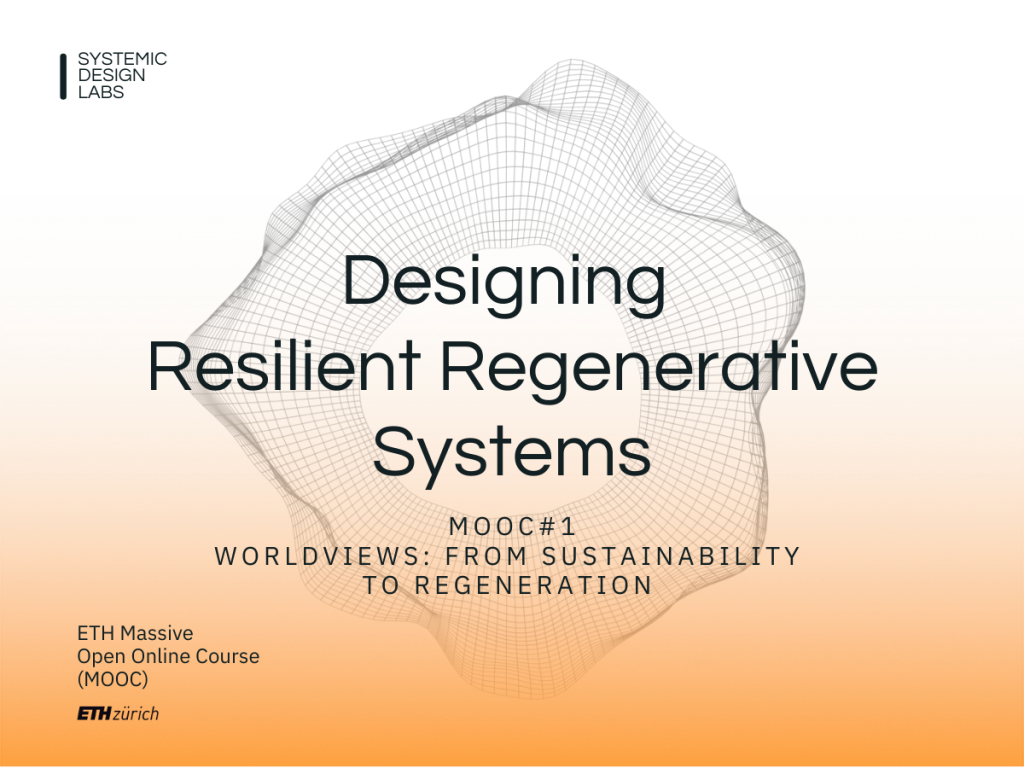
Status: 2nd iteration open (self-paced)
Format: virtual (edX) + DRRS network
Language: English
Program fee: Free / edX certificate 50 euros
In this first MOOC you are introduced to current globally relevant nested crises, and how local action relates to such. You become conscious about the existence and dominance of current and alternative worldviews. You learn the roots of sustainability and pathways to regeneration. You acquire tools to reframe complexity and befriend uncertainty, while studying different ways of knowing and reasoning, from science to warm data. You learn to reconnect with nature and to design as nature. You gain new awareness through practices of physical and mental activation via self-compassion techniques and flow experiences in nature.
1.0 Welcome and introduction
1.1 Global crisis with local solutions
1.2 From sustainability to regeneration
1.3 Reframing complexity
1.4 Different ways of knowing and reasoning
1.5 Design as nature
1.6 Mind and movement
MOOC#2 Title:
Beyond Systems Thinking
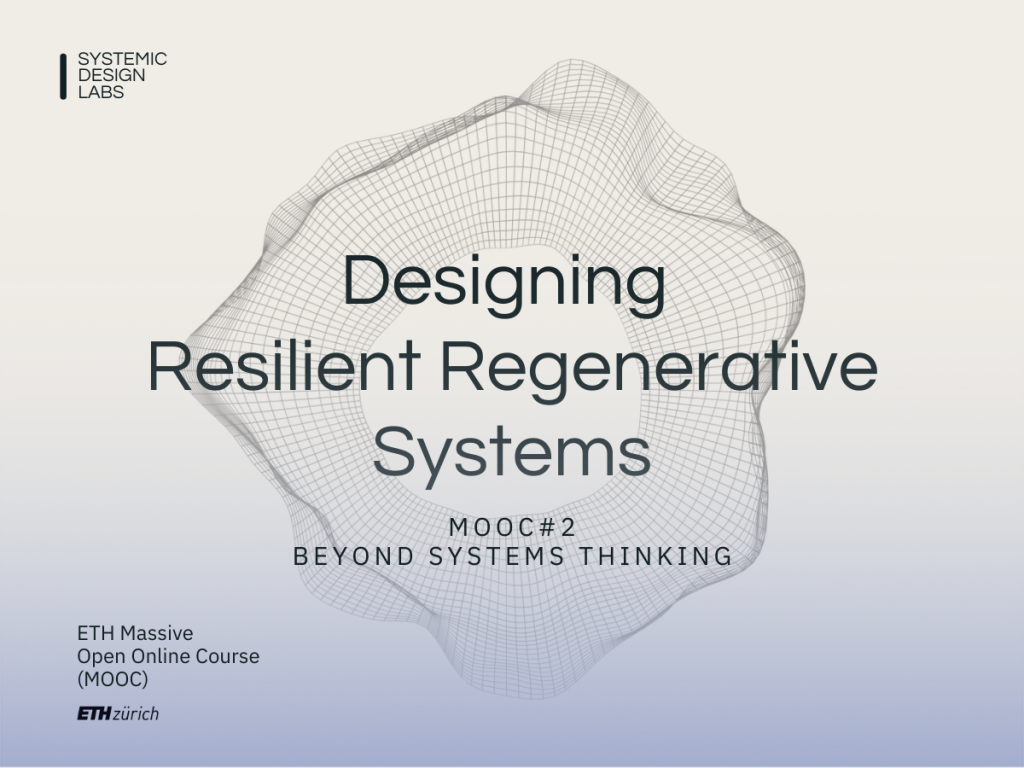
Status: 1st iteration closed (teacher-paced ); 2nd iteration re-opened in February 2024 (self-paced)
Format: virtual (edX) + DRRS network
Language: English
Program fee: Free / edX certificate 50 euros
we develop a critical understanding of what systems thinking entails and how it can become a helpful habit. We learn about living systems concepts of evolutionary biology, and how we as humans are entangled as part of living systems. The view from above contains techniques to deal with complexity, to zoom out of a system to zoom in on what matters most. We learn the basics of social network analysis and how to measure and interpret structures in networks, such as for resilience. We acquire an applicable toolset i.e. on the transformative potential of outer and inner resilience, which leads over to an extended look into circularity, from a circular economy to five types of circular flows. Finally, we learn about systemic innovation, how to nudge complex systems to transform, and with what tools this may be possible.
2.0 Welcome and introduction
2.1 (Critical) Systems Thinking
2.2 Living Systems
2.3 (Social) Networks
2.4 Resilience
2.5 Circularity
2.6 Systemic Innovation 2.7 Synthesis
MOOC#3 Title:
Systemic Design
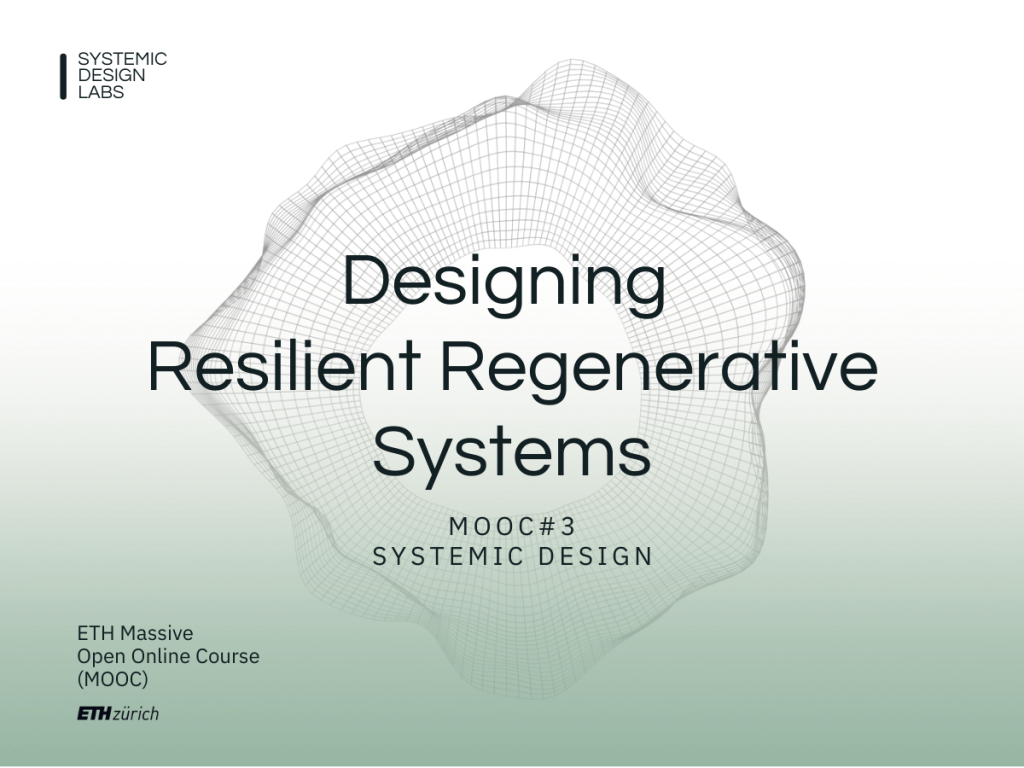
Status: 1st iteration opens in September-October 2024 (self-paced)
Format: virtual (edX) + DRRS network
Language: English
Program fee: Free / edX certificate 50 euros
In this third MOOC you learn the latest on the hybrid field of methods and practices in systemic design. You explore how designers work, across disciplines, from design thinking to research by design. Cross-scale design is a newly developed tool to help guiding transformative designerly work across scales of governance, which helps anyone to find their entry points to systems change. Systems-oriented design is a specific practice of visual dialogue with Gigamapping, part of a messy rich design space, leading to narrating synthesis maps. These are one way to get into transdisciplinary dialogue, and you will learn others. Finally, you learn about real-world laboratories and their transformative capacities.
3.0 Welcome and introduction
3.1 Origins and advances in Systemic Design
3.2 Scientific methods
3.3 Designerly methods
3.4 Cross-scale design
3.5 Embodied and transformative practices
3.6 The art of navigating through systemic design 3.7 Living Systems Labs and other real-world labs
MOOC#4 Title:
Real-World Transformative Design Praxis
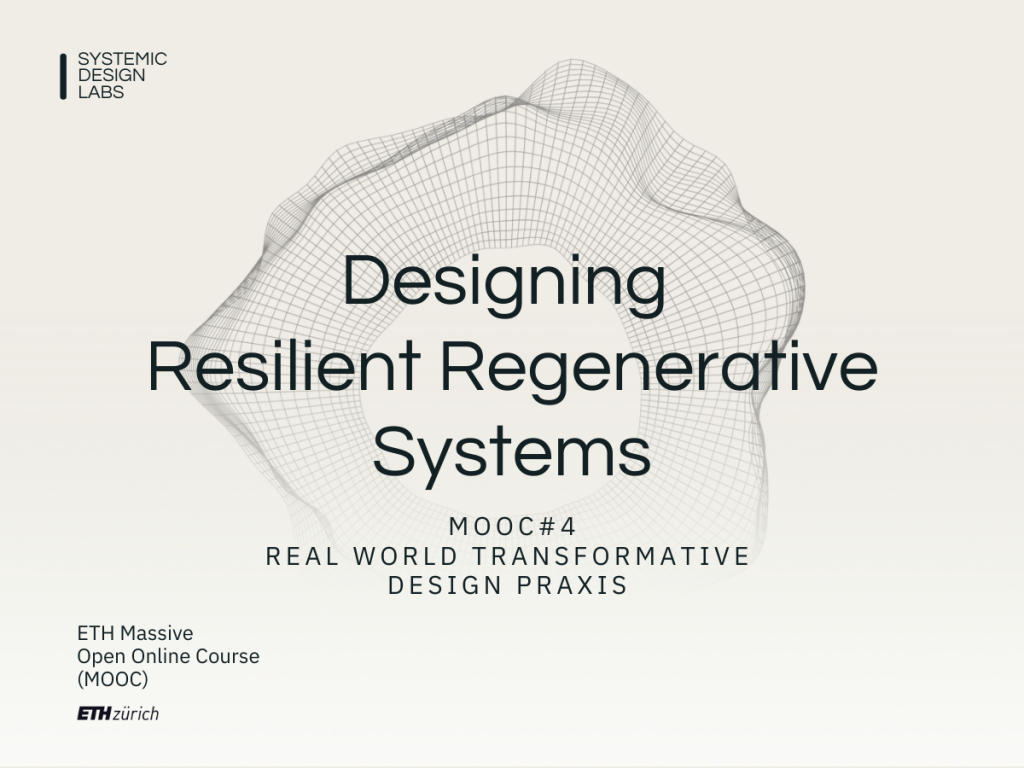
Status: 1st iteration end of 2024/begin of 2025 (self-paced)
Format: virtual (edX) + DRRS network
Language: English
Program fee: Free / edX certificate 50 euros
This fourth MOOC takes you to illustrative real-world laboratories and living systems labs, across types, geographies, climates, cultures, and scale. The MonViso Institute in the Italian Piedmont is a mountain campus lab with holistic approaches to sustainability transitions and regenerative design across scales, from buildings to bio-regions. The Spanish Island of Mallorca provides fascinating insights into a maritime, mediterranean bio-regional context. Hemsedal Norway opens up a Nordic climate and culture. Finally, Tiny Labs are “anyone, anywhere, anytime” low-threshold integrative types of real-world experimentations you will learn about. You’ll finish this MOOC and the entire series with your own bio-regional transformative design praxis project.
4.0 Welcome and introduction
4.1 RWL: The MonViso Institute, Ostana, Italy
4.2 RWL: Mallorca, Spain
4.3 RWL: Hemsedal, Norway
4.4 RWL: Tiny Labs
4.5 Transformative Design Project
“We need to fundamentally redesign our societies, our economies, our lifestyles, our human-nature relation.”
A new cohort of “weavers”
A new learning community you will be part of – Designing Resilient Regenerative Systems (DRRS) – a virtual place to co-create the Now and the Next, to deep dive into themes that a MOOC may trigger, to engage and create further learning opportunities.
Check out DRRS network.
Time to invest will be about a minimum of 3-5 hours per week, with each MOOC taking between six and eleven weeks of time, including brake weeks.
Diverse experts in their fields who walk their talk. University professors, designers, builders, politicians, mountain guides, consultants, entrepreneurs, architects, visionaries, PhD students – and yourself, as participant, in the form of learning tandems with regionally close colleagues.
